Eric
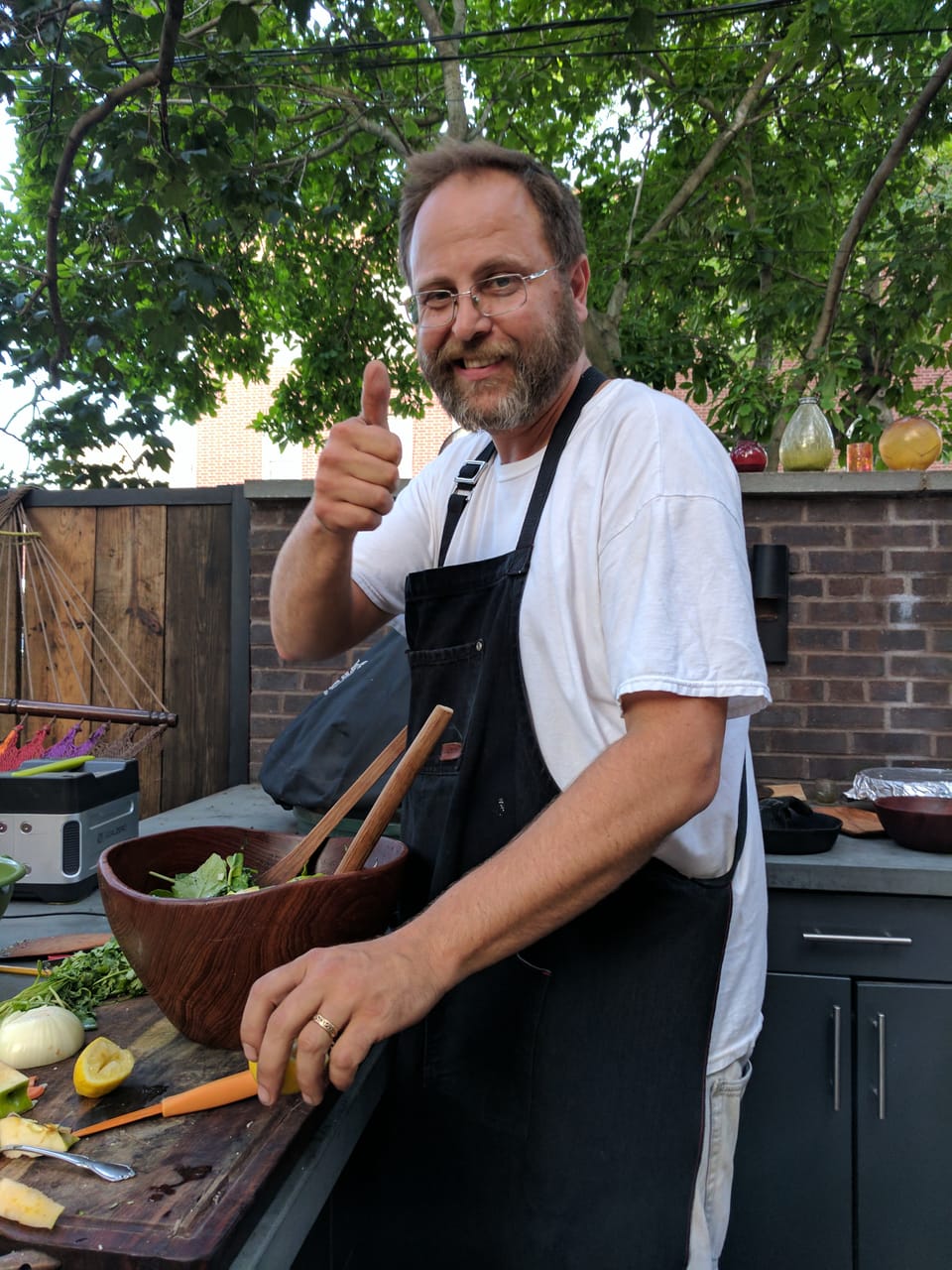
Eric Costello co-founded four products at two companies with Stewart, Cal and Serguei. Ludicorp made Game Neverending and Flickr. Tiny Speck made Glitch and Slack. Eric was there for all of it, the coding engine behind the frontend for all of these products that millions of people loved.
Understandably, Eric doesn’t get as much attention as Stewart or Cal. Like Serguei he was always focused on building the products rather than leading the company.
But if Stewart was the visionary leader and Cal the engineering genius behind Slack, Eric was the heart and soul of the early days. No one exemplified our values of empathy, playfulness, and craftsmanship more than Eric, long before these were written down. No one was more humble. He left his fingerprints on so much of the early product and culture of Slack.
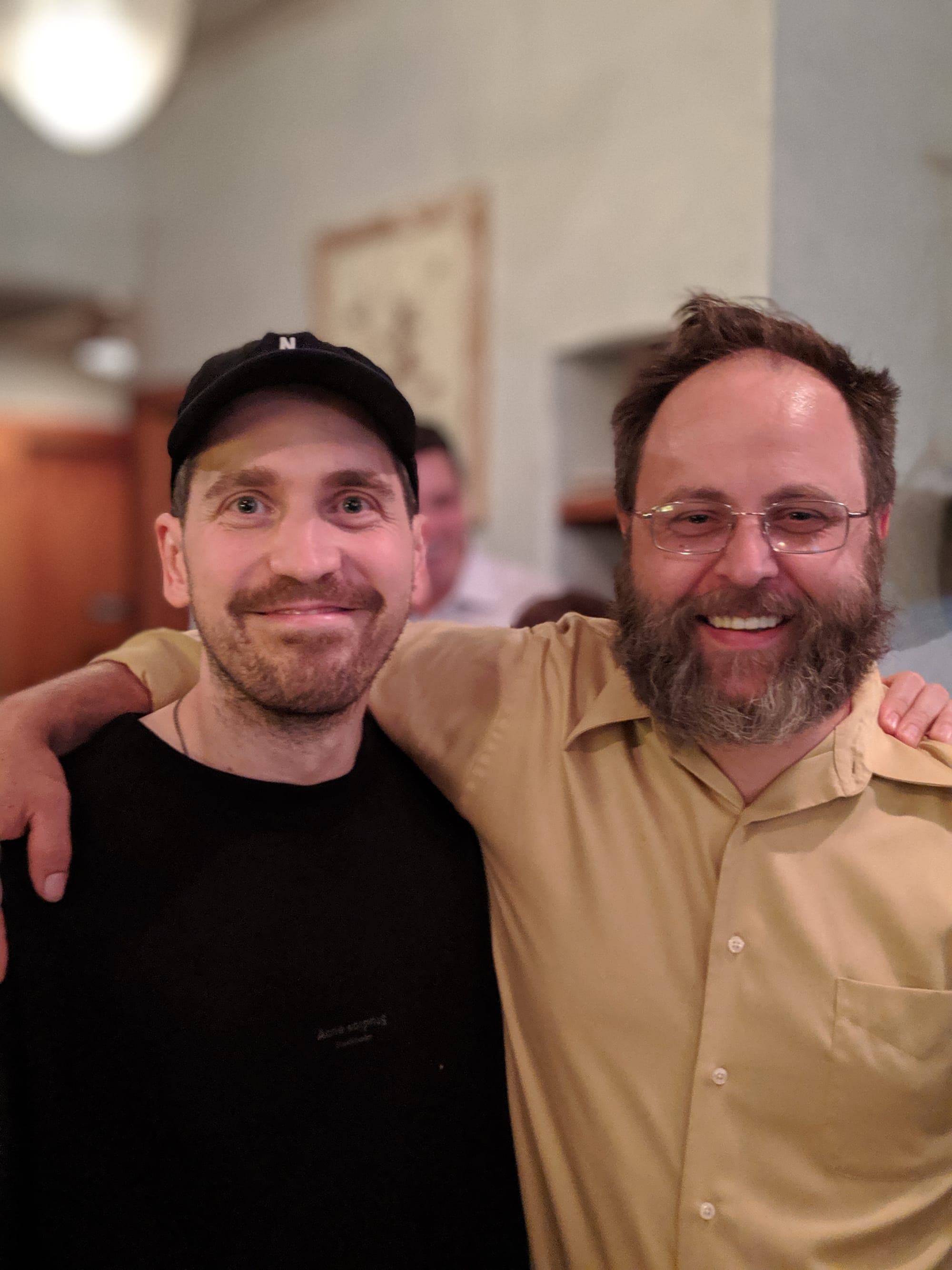
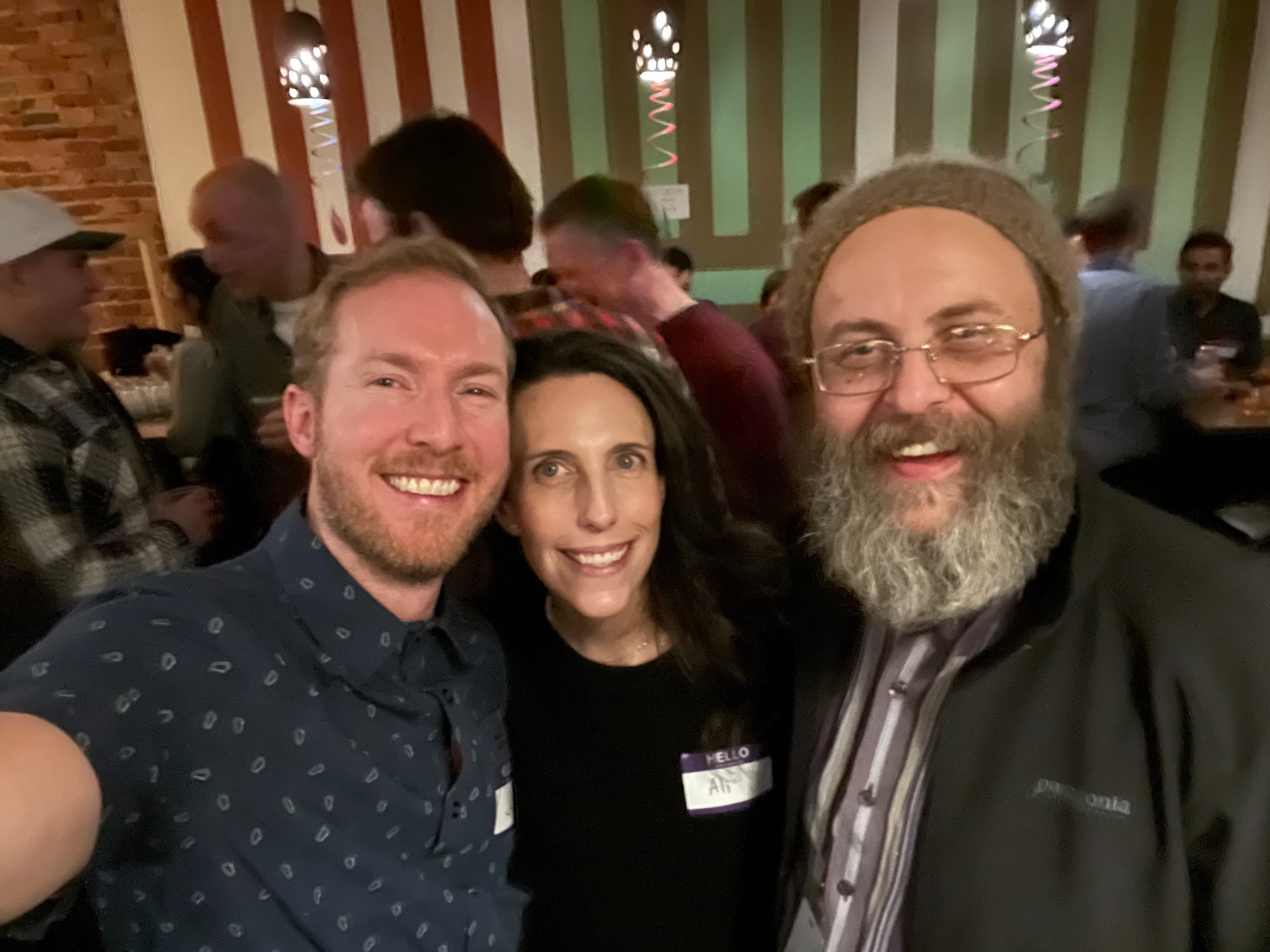
Left: Brandon Velestuk (Slack's lead designer) and Eric. Right: Me, Ali and Eric
When I joined Tiny Speck to work on Glitch, I was assigned to work on the web app that supported the game. Eric was leading the development of the game client itself, and our day-to-day work didn’t overlap very much. I met him only infrequently at our few in-person company meetings and knew him as the friendly guy with the bottle of bourbon and the banjo.
That changed abruptly when the company pivoted to build Slack. I found myself as one half of our frontend engineering team. Eric would mostly look after the client’s guts: connecting to the message server and web API, keeping track of state, populating models and the like. I would mostly build out the user interface and user experience of the app. Often this would blur, but was mostly how we operated and handed work off between one another.
From the get-go, Eric treated me like an equal. This despite the fact I was a 20-something fresh on the job and he was a 20-year industry veteran. Not to mention a co-founder of the company. If I had an idea he’d incorporate it (if it was good). If I had a question he’d answer it immediately, usually with a bit of code or screenshot to make it clear. If I made a mistake he’d help me fix it without any fuss. At this point I still found Stewart and Cal a little intimidating. Eric was a benevolent presence I counted on to guide our work and shore up the gaps in my skill set.
And what a presence he was. Eric was everywhere, committing dozens of changesets to the codebase every day. These ranged from one-line fixes and tweaks to thousand-line new features. These arrived at all hours of the day, most days of the week. We would often discuss something toward the end of the day on the west coast as we wrapped up around 6pm (9pm for Eric in New York) and I’d arrive at my desk the next morning around 8:30am to find the whole thing implemented and ready for my part.
Through him, I learned how he negotiated the responsibilities of our clients and servers. Cal and Myles and Serguei would build out an API, and Eric would help them refine it so he could pull off exactly what he wanted in the app. This back and forth effortlessly accounted for considerations of performance, user experience, and the capabilities of the technology at the time. It was never spec’d out in depth, just discussed and documented enough to be sensible in our small high-context group. If he hit an obstacle he’d cajole until the backend was changed to suit what he had in mind.
Eric is the kind of engineer who was agnostic about what technologies to use as long as we could achieve the features we wanted and iterate quickly. He is pragmatic in all things, loose in coding conventions, creative in function naming, and unconcerned with the trends and debates many engineers seem preoccupied with. For Eric, that was all just background noise. What mattered was what we were building and how people would use it.
During our daily discussions of how the product should work, which usually started in channel and then sometimes spilled into voice calls, Eric was the backstop. “What do you think, Ricky?” Stewart would often eventually ask, looking to Eric to settle a debate or choose between options. Without fail, Eric would reliably give his honest opinion. Without elaborate rationale or argument, but with heartfelt taste and eagerness to make something great. He could somehow convince a room full of smart, opinionated people that were very happy to debate alternatives to make a decision and move on.
Eric’s playfulness underscored everything he did. His commit messages and code comments often included self-deprecating jokes. His manner in meetings and at events was unfailingly kind, friendly and often charmingly mischievous. He once called into our daily engineering sync from his sailboat's cabin, sporting a pirate's bandana and a bottle of rum beside his laptop.
One day when the idea of being able to react to messages with emoji began to bubble up, Eric ran with it. After Slack’s first product manager Mat Mullen and early designer Matt Kump proposed the concept, Eric had a working version within 24 hours. This included a lovely lightweight UI for picking emoji (including user-created custom emoji), grouping for aliases, and a number of other little details that made the feature feel great. Though there have been nice improvements and iterations since, his initial UI remains essentially as he implemented it, used and loved millions of times a day.
The internet loved it. Our customers loved it. It perfectly fit the emerging ethos of fun, self-expression and rapid feedback at work that tools like Slack were making possible. And it perfectly exemplified Eric’s approach to making software for people. Reliable, useful, fun and full of thoughtful touches. It would go on to be copied by dozens of other products.
In early 2016 Slack was beginning to really ramp up in usage and popularity. I was at home on my last bit of paternity leave for my first son (side note: among the many things Slack was good at, they offered great parental leave). Amidst the euphoria and exhaustion of looking after a 12-month old baby, I was excited to get back to work and rejoin my colleagues in all the fun being had at the company.
Stewart called me one morning to let me know that there had been a fire at Eric’s house. An accident had gotten out of control, severely damaging the house and leaving Eric badly shaken and with a burned leg. Everyone was okay, but Eric would be taking some time off to recover.
After several months, Eric returned. He worked with our new Search, Learning and Intelligence group at our NYC office on some prototypes. But things had changed. Eric has four children, some of whom were home during the fire. His perspective on how he should be spending his time had shifted. After a brief stint, Eric retired for good.
This left a hole at Slack. A hole in our small founding group, in our frontend engineering team, and a gap in our cultural fabric. I found myself suddenly responsible for a growing team of frontend engineers, being looked up to for guidance. I no longer had the assurance and stability Eric had always represented. For a while this was deeply disconcerting. But the foundation of the code, product and company were all strong, and the addition of a number of great veteran frontend engineers like Mark Christian and Lauren Bosak helped to fill the gaps Eric had left. We recovered, though it was never quite the same.
On a visit to our NYC office a year after his retirement, Eric invited Brandon Velestuk and I out for dinner at his place in Queens. He cooked us an amazing meal in his backyard kitchen and we chatted and drank wine long into the evening. He seemed great. At ease and full of love. A year later on a subsequent visit he’d take me and some friends to the Kennedy Center to see a Steve Reich concert.
The energetic, incredibly productive, inspiring mentor I’d known had gracefully transformed into a retired dad. Still full of curiosity and creativity, but at peace with a life after work and the hustle of Silicon Valley. He would go on to start a farm in upstate New York, spending his days tending to animals and the land. Though he admitted to me last I saw him that he couldn’t help but hack away on his own pet code projects from time to time.
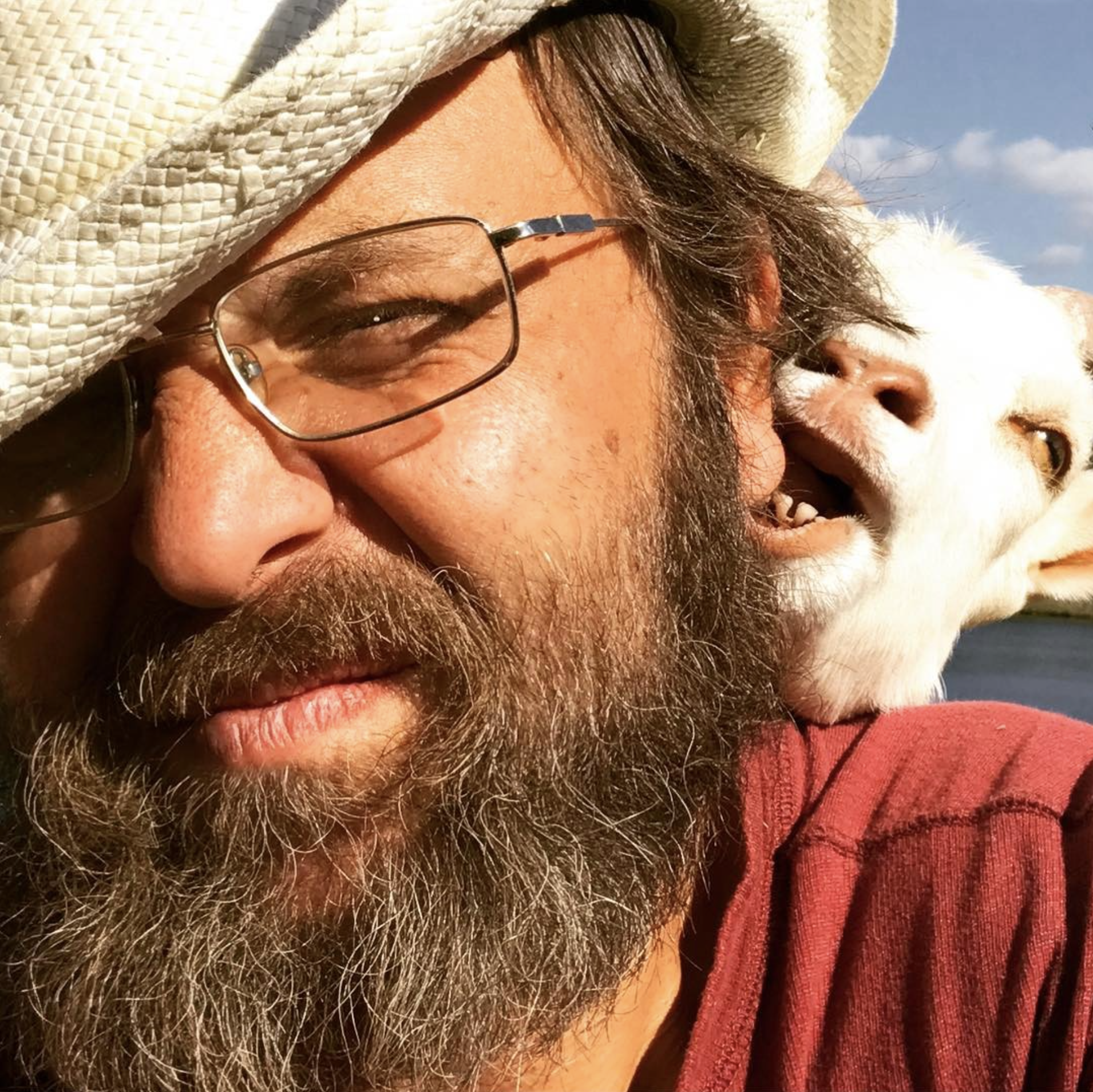
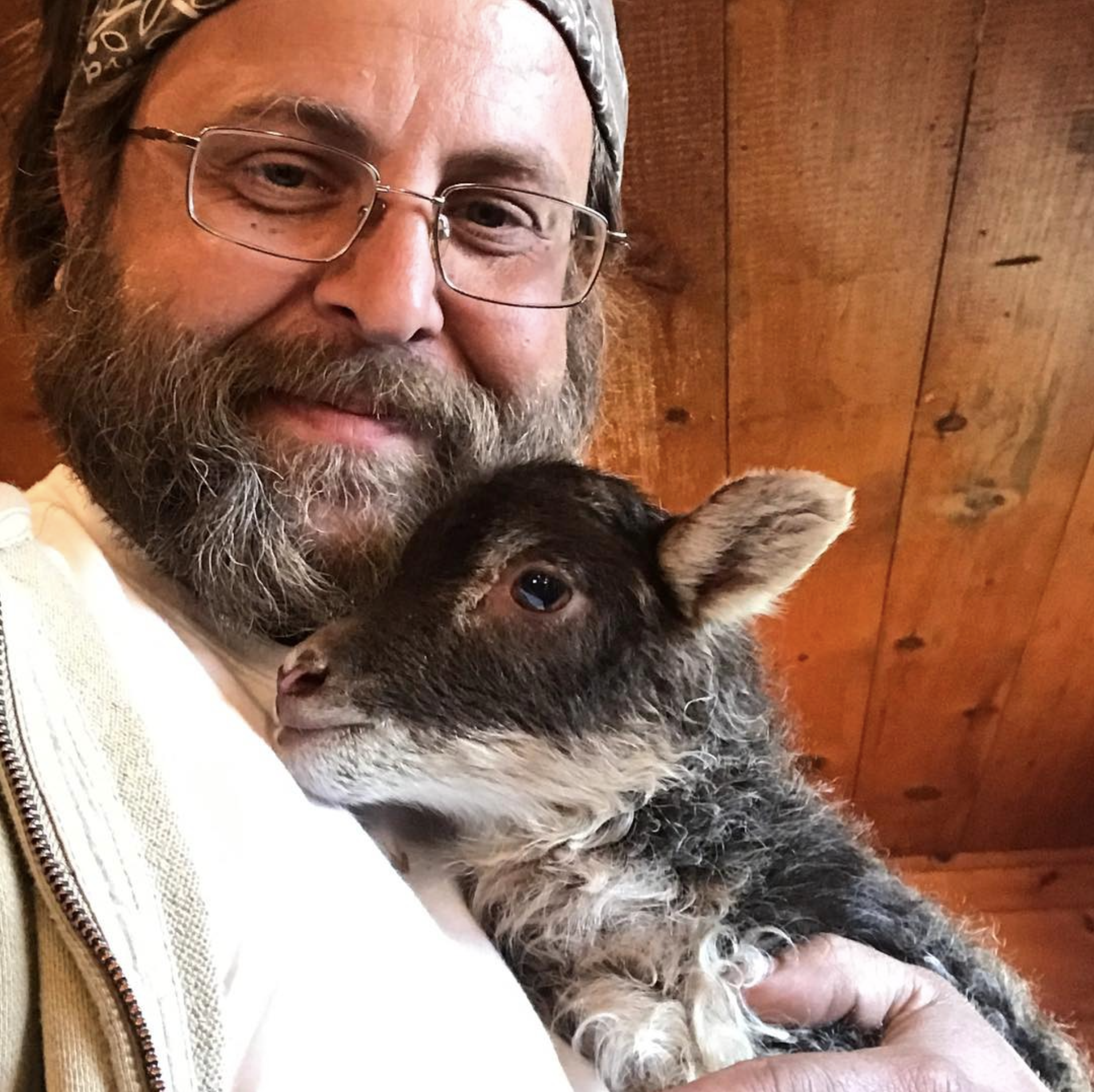
Eric and his goats.
Eric gave me an education in software development that has completely shaped my own approach to the craft, and a simultaneous instruction in how to treat your colleagues with humanity, honesty, and good humour. His influence on Slack was evident in so many details of the product, and in the culture of the company that so many of us loved.
